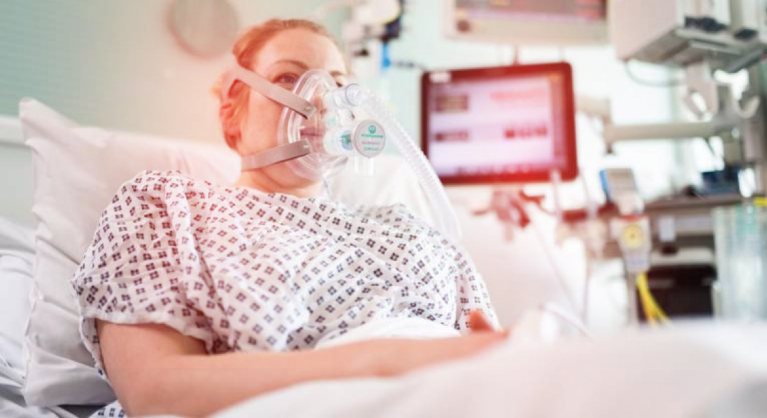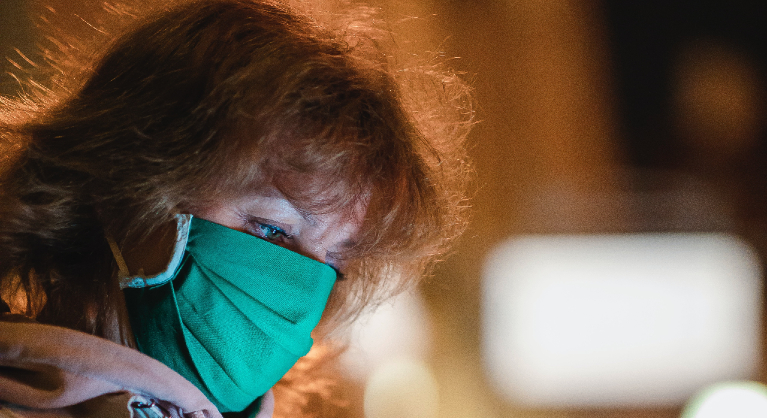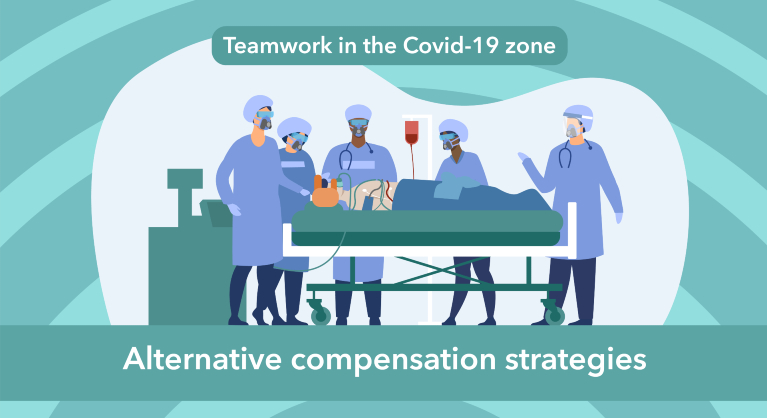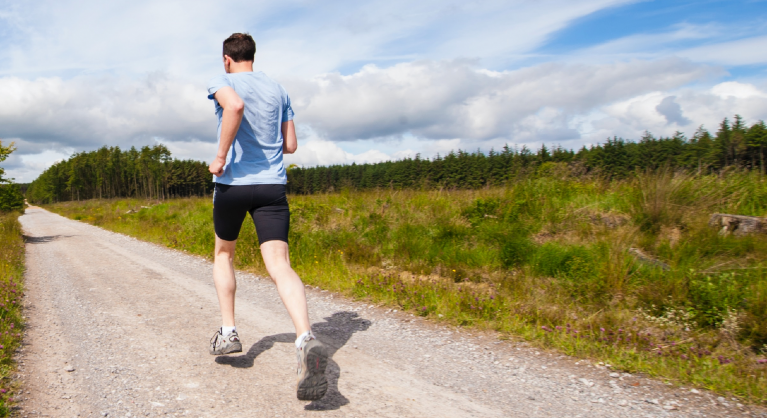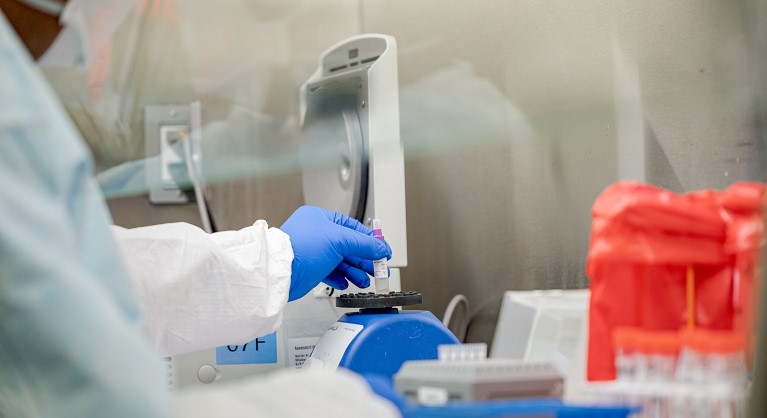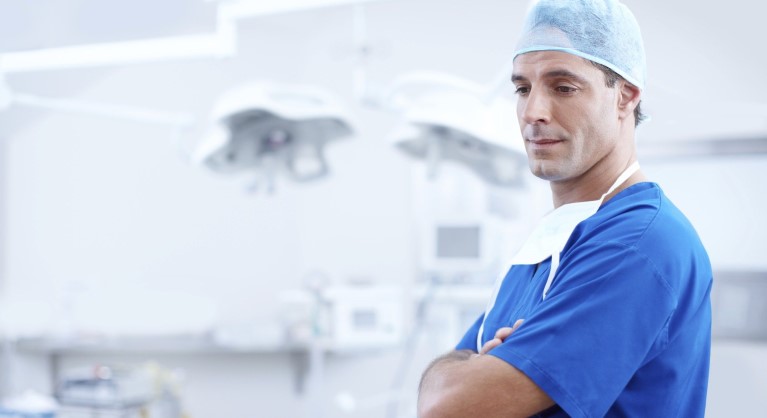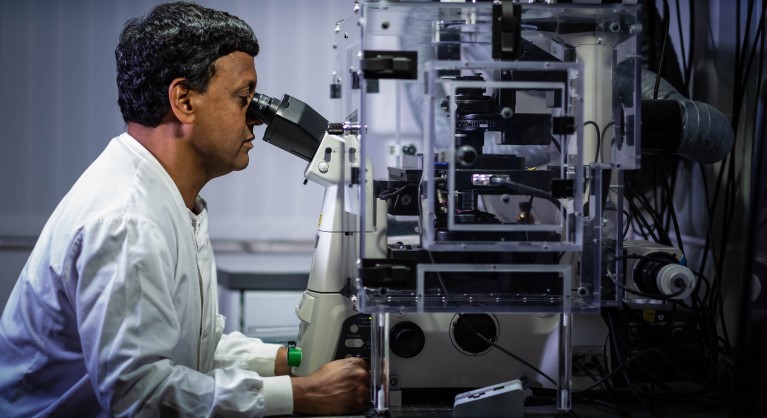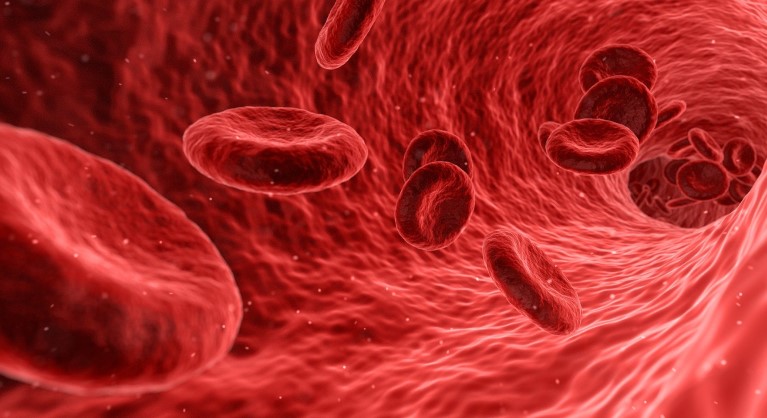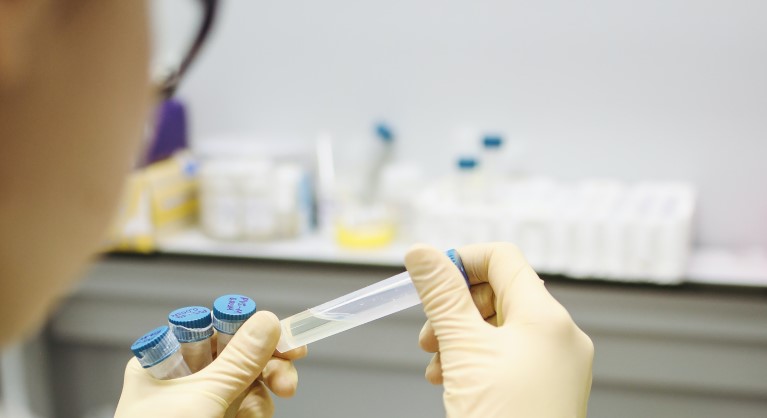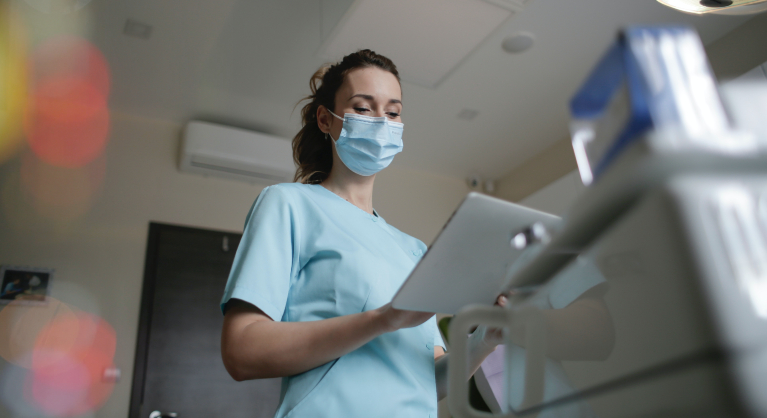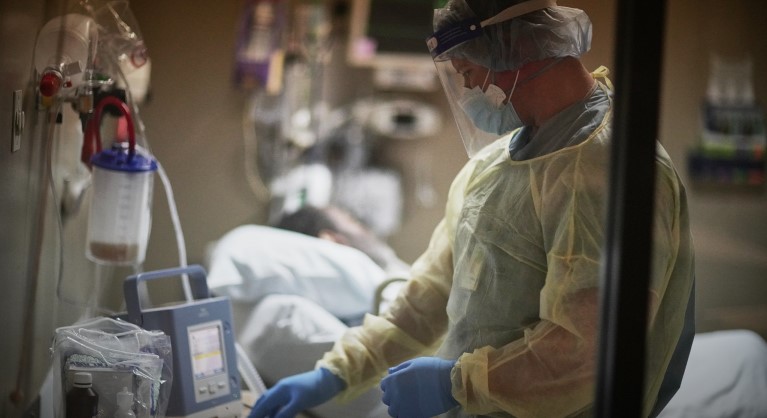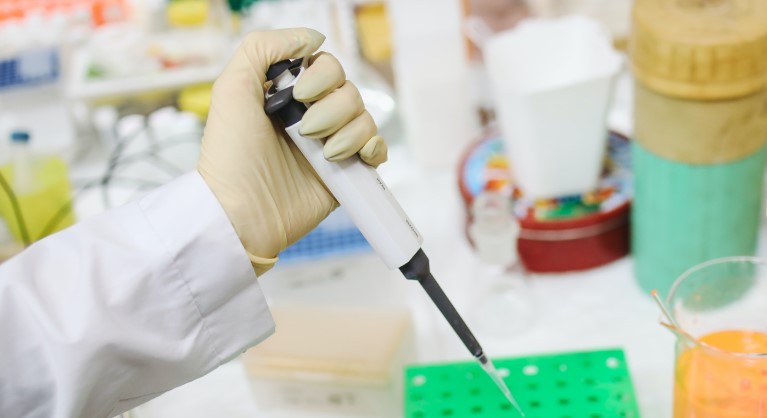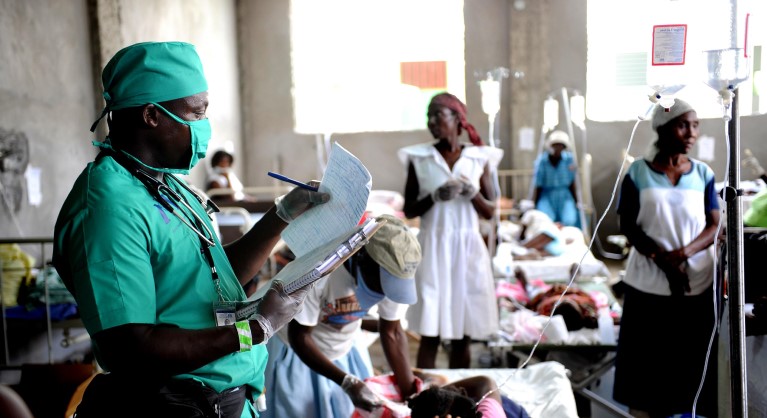Clinical research and supporting the NHS
Alternative to antibodies in diagnostics demonstrated in fight against Covid-19
Warwick researchers have demonstrated their technology to detect Covid-19 using sugars rather than antibodies. This alternative system of detection using glycans (sugars), where synthetic polymer chains are used to attach the glycans to the surface of nanoparticles. The work shows that glycan-recognition technology can be used to identify pathogens, which the academic/industry team are actively developing further as part of a collaborative project.
Continuous positive airway pressure (CPAP) reduces need for invasive ventilation
A landmark trial led by Warwick and Queen’s University Belfast has found that hospitalised Covid-19 patients who received continuous positive airway pressure (CPAP) were less likely to require invasive mechanical ventilation. Data from the trial also suggests that routine use of high flow nasal oxygenation (HFNO) should be reconsidered as it did not improve outcomes for patients compared with conventional oxygen therapy.
High respiratory efforts in Covid-19 patients could result in self-inflicted lung injury
Some Covid-19 patients with acute respiratory failure respond by breathing faster and more deeply. Warwick researchers have provided evidence that these high respiratory efforts can produce pressures and strains inside the lung that can result in injury. Researchers adapted a computational simulator of cardiopulmonary pathophysiology to quantify the mechanical forces that could lead to patient self-inflicted lung injury.
Teamwork in the Covid-19 Zone
Covid-19 has increased the global need for Personal Protective Equipment. Yet, Level 3 PPE creates a physical barrier which restricts body movement, hearing, lip reading and peripheral vision. These sensory limitations have changed how medical teams engage with colleagues and patients. Professor Jo Angouri from the University of Warwick and Dr Chris Turner from UHCW NHS Trust have explored how Level 3 PPE impacts teamwork, and identified strategies to avoid information loss and fragmentation.
Future targets for Covid-19 treatments rapidly identified with new computer simulations
Researchers have detailed a mechanism in the distinctive Covid-19 protein spike to help scientists find new treatments for the virus, and quickly test if existing treatments are likely to work with mutated versions. The team simulated movements in nearly 300 protein structures of the Covid spike protein by using computational modelling techniques, in an effort to help identify drug targets.
Anti-microbial poles for public transport to be made in light of Covid-19 pandemic
Due to the Covid-19 pandemic, many people have been concerned about taking public transport due to the risk of picking up germs from areas such as grab-poles on trains, buses and trams. However, a team including researchers from WMG are developing lightweight grab-poles with an embedded anti-microbial property, thanks to a £480,000 award from the Innovate UK Smart Grant scheme.
New clinical trial to test if structured exercise benefits ‘long Covid’ patients
One of the first clinical trials to investigate treatment for the long-term symptoms of Covid-19 is to be led by University of Warwick and University Hospitals Coventry and Warwickshire NHS Trust. Researchers will pioneer an exercise and support programme for people with ‘long Covid.’ Previous research on similar diseases, such as SARS, has shown benefits of exercise rehabilitation for patients.
Antibiotic treatment for sepsis in Covid-19
A new study involving Warwick researchers is looking to improve antibiotic use for Covid-19 patients at risk of sepsis. Progression to sepsis often occurs in critically ill hospitalised patients, and is a common cause of Covid-related death. The research team – including doctors and scientists from Warwick Clinical Trials Unit – will seek to make the prescribing of antibiotics for critically ill Covid-19 patients with suspected sepsis more targeted and effective.
Developing a tool for rapid detection of coronavirus
Scientists at the University of Warwick have demonstrated that a potential diagnostic tool for detecting Covid-19 using sugars will work with a virus, rather than just its proteins - a significant step in making it a viable test in the future. Appearing similar to a pregnancy test, the tool is being created in collaboration with Iceni Diagnostics, and may allow for on-the-spot coronavirus detection.
Covid-19 patients with sleep apnoea could be at additional risk
People who have been diagnosed with obstructive sleep apnoea could be at increased risk of adverse outcomes from Covid-19, according to a new study from the University of Warwick. 1.5 million people in the UK are currently diagnosed with the condition, but up to 85% of people could be undiagnosed.
Ventilators, visors, volunteers and testing
Throughout the pandemic, our academics and students have been working tirelessly to support the battle against coronavirus. From making visors, to working to develop an alternative model of ventilator, to making more reagents for Covid-19 testing and much more, discover how our staff and students helped respond to pandemic.
Creating a doctors app with up-to-date reliable Covid-19 information
A team of Warwick researchers and hospital clinicians have created an app for health professionals on the frontline of the fight against the pandemic, giving them a guide through the mass of information on the virus. It is designed to act as a tool for doctors, GPs, nurses and other health professionals caring patients with Covid-19.
Alleviating the Covid-19 testing bottleneck with DIY reagents
Our Medical School researchers have developed a way to create more crucial reagents for use in Covid-19 testing. Demand for reagents used in Covid-19 tests created some supply issues in the UK, so our researchers decided to make more of the enzymes needed to produce reagents that could then be used in commercially available testing kits.
Warwick researchers, to map Covid-19 effects and treatments in patients' blood
Our researchers are working to identify how coronavirus molecules are structured in patient’s blood by measuring the molecules to determine what they are and where they are. Professor Peter O’Connor is part of a collaboration of scientists working on the project, which will help inform testing, treatment, isolation requirements and therapeutic programmes.
Customers buying Covid-19 home testing kits were often misled
Home-testing kits sold online in the UK and US in the midst of the pandemic were provided with incomplete and in some cases, misleading information about their accuracy, according to a new study by researchers at the Universities of Warwick and Birmingham. This could put people at risk of becoming infected or infecting others.
The early pandemic paradox
Warwick research shows fewer UK deaths were registered in the first four months from December 2019 to March 2020 compared with the previous five years. Could the lower death rate during the early stages of the pandemic be attributed to enforced social distancing and government hygiene mandates - leading to a reduction in the spread of non-Covid infectious diseases?
National clinical trial for Covid-19 patients
Our researchers are helping deliver a clinical trial to find effective alternative solutions for patients hospitalised with Covid-19 in order to reduce the need for ventilator treatment. The RECOVERY-RS Respiratory Support trial will compare standard care, intubation and invasive ventilation with non-invasive treatments. This will help determine effective methods for reducing the need for invasive ventilation - leading to improved patient outcomes.
The opportunities and challenges of existing drugs
Before an effective vaccine is rolled out, we must provide supportive treatment to the most severely affected patients and look into existing drugs to treat Covid-19. Repurposing existing drugs presents our only hope in the short term, but is not without challenges. Many drugs are currently being used and tested in over trials, including hydroxychloroquine.
Coronavirus brings dawn of digital healthcare
How can technology help deliver healthcare in a time of crisis? The pandemic could herald the start of more digitised healthcare. New ways of remote and digital health working can enhance GP communication and improve healthcare by better managing the clinical load of frontline staff. Professor Theo Arvanitis explores the important role of digital healthcare in a time of coronavirus.
Could Covid-19 prompt the start of remote consulting in low & middle income countries?
Healthcare consultations by mobile phone and apps can help reach more people whilst reducing the need for physical contact and PPE. Researchers at Warwick and King’s College London have developed a training course with researchers in Tanzania, designed to equip medical staff with the knowledge and skills to permanently integrate remote consulting into their local health service.


